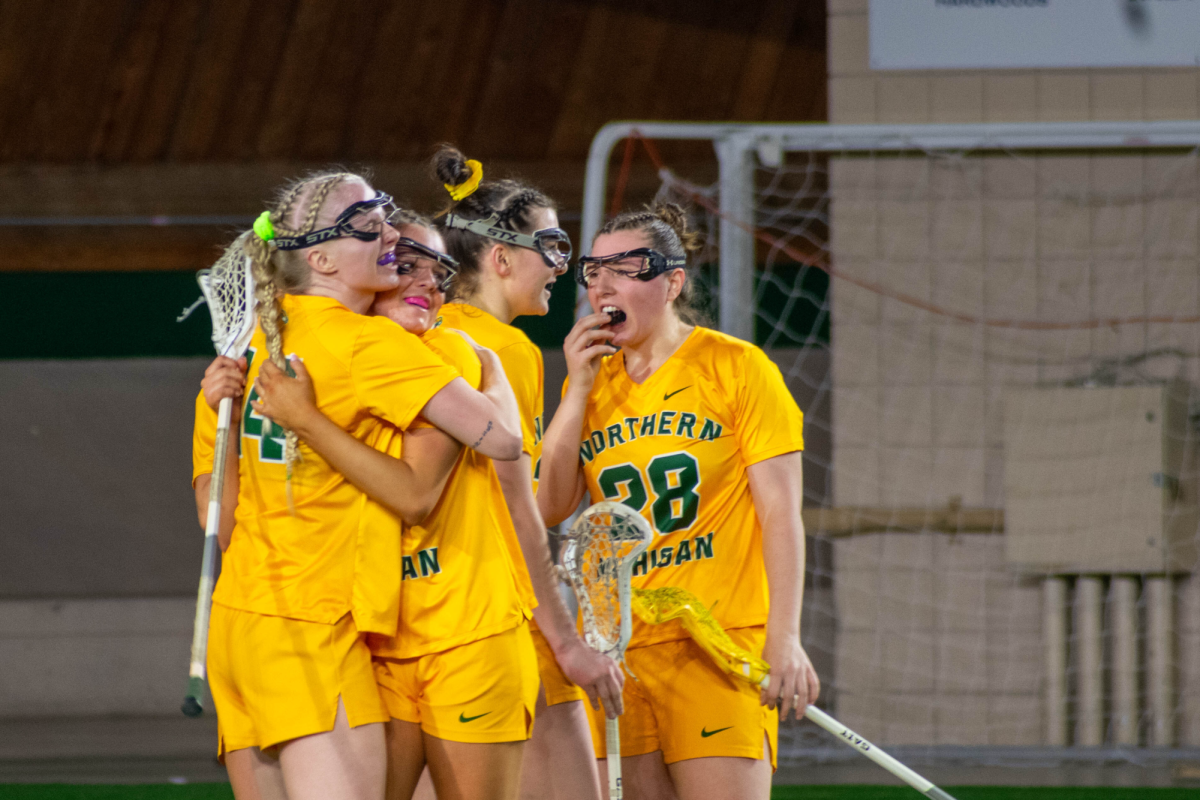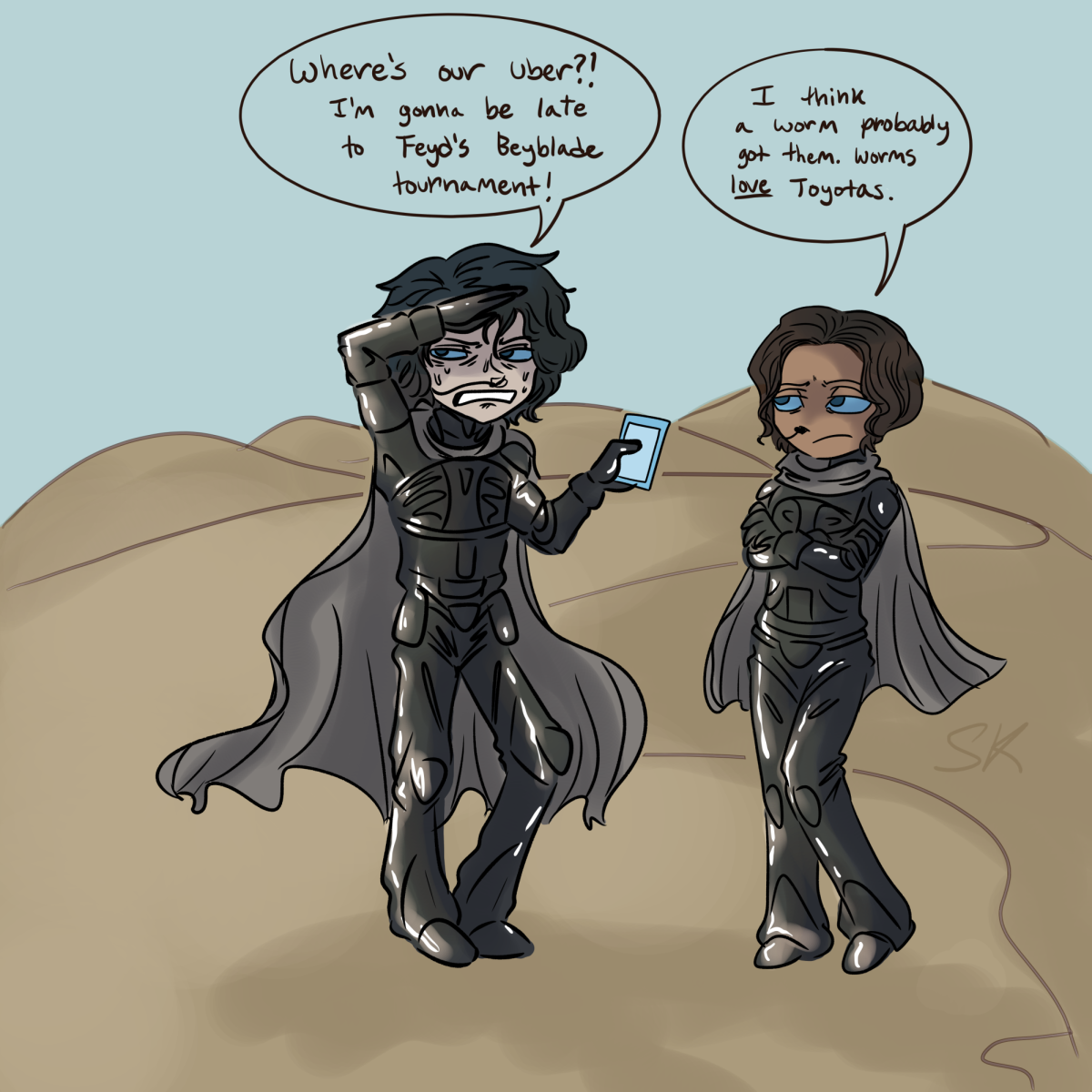If you are sitting next to someone that looks Middle Eastern, anti-American worries and extremist-group references may cross your mind; racial profiling is unfortunately easy in times like these.
We see stories in newspapers, on the Internet and all over TV of the recent attacks Islamic extremists have perpetrated against their enemies. We are bombarded with horrific images of what these groups have done, but we are not often given a look at the Muslims who remain innocent bystanders.
According to the Pew Research Center, 8 percent of Muslims in America believe suicide bombings are often or sometimes justified, while 81 percent say they are never justified.
Mikenzie Frost, a senior at NMU, keeps up with these issues as part of her job as a producer at Public Eye News.
“It is sad that one group of people can tarnish a whole sector of society,” Frost said.
Here at NMU we have a small, yet diverse, community on campus; this isn’t to say that we’re entirely tolerant as a student body. Some students who are not Muslims have said things on social media such as “All Muslims should be apologetic,” which was posted after some recent ISIS attacks.
Julio Diaz, sophomore and international studies major, reacted to this with a staying remark.
“That is like saying all Christians should be apologetic for the KKK,” Diaz said, “which is ridiculous to me.”
Judgmental attitudes from Americans tend to start with Sharia Law. When I asked Umair Riyas, member of the Muslims Students Association (MSA), he said Sharia Law was more of a cultural and political factor than being at the very root of the religion.
I also asked if the extremists have had an effect on the meanings of Sharia law, and his response was that they have manipulated it into something it wasn’t meant to be. Muslims, he said, are generally not in favor of things like female genital mutilation, things we might hear about ISIS carrying out.
However, when I spoke with some members of the MSA about Islamophobia on campus, not everything they said was negative. Abduikadir Yapici, of Turkey, said, “When they hear I am Muslim, they are asking questions, wanting to learn.” Most of the students here want to hear about other religions and cultures for the sake of learning and being aware. This isn’t always the case, though.
The Muslim holy book, the Quran, has been “tampered with” according to Riyas. This has been part of the reason why we have the rebels, and the teachings of the Quran have been misrepresented in mass media as well.
TJ Aiyash, a graduate student studying higher education at NMU, has been reading the Quran. He speaks out for it, saying, “I know how the media has manipulated it (the Quran) to sensationalize radicalism.”
As a journalist I was invited by the MSA to pray with them, as well as sit in on their worship service. It was one of the most peaceful moments I have ever experienced, with a group of people I didn’t even know, and the students were very inviting. The MSA members brought clarity to their conversations with me on the topic of Islam.
I was able to meet with a handful of Muslim students: Umair Riyas of Sri Lanka, a junior majoring in mechanical engineering, Abdulkadir Yapici of Turkey, Amer Mansoor of the U.S., a junior majoring in communication, Phil Meglathery of the U.S., a junior majoring in social work and Khadijah Wilson of the British Virgin Islands. She was a student in 2012 and is the wife of Carter Wilson, head of NMU’s political science department.
Wilson had some issues with racial profiling from students in class when she wore her hijab, the traditional covering for women of Islam. She said she had to be very defensive.
“There was a lot of stereotyping in class,” Wilson said. “Two students were saying that Muslim women did not have rights to do anything.”
So she made a play for the class to clear things up when it comes to women in the Muslim culture and their coverage.
As she sat in class, these two students said Muslim women were not able to receive an education.
When I asked about her feelings freedom, even though it seemed obvious that she felt free, she replied, “I have all the freedom I need, and then some.”
When she hears about the extremists, she wonders why everyday murderers are not considered terrorists.
“I want to know what goes through the Americans’ minds when their own people do the same thing,” Wilson said.
Her message is this: “Be smart, don’t just assume that this stuff that is happening in the world is only done by Muslims; it is done by extremists.”
These MSA members who speak for their religion do not accept the extremists as Muslim and consider themselves separate.
“I will not consider them Muslim,” said Riyas. “Even if they announce to the world that they are destroying countries and lives in the name of Allah, I still will not consider them Muslim.”
And it isn’t just Islamic extremists, but also Buddhist monks among others that have taken to terrorism, leaning on the belief that violence is the answer to their problems.
Riyas illustrated this point with his story about before he left Sri Lanka. “It was a racist issue with some Buddhist monks, a group called the Bodu Bala Sena (BBS) who are extremists,” Umair said. “It was just an all-out attack on Muslims back home because most of the population is Buddhist, and we didn’t do anything.”
According to an August 2014 article from the New York Times, the BBS is a supremacist group who have been striking out against Muslims in Sri Lanka. A rally was organized there after a traffic dispute between a Muslim man and a Buddhist man; Galagoda Aththe Gnanasara Thero, a monk leader of the group, made a statement soon after the rally.
He said, “If a Muslim or any other foreigner puts so much as a hand on a Sinhala person—let alone a monk—it will be the end of all of them!”
Riyas shared what he had seen in his home in Sri Lanka: “They (the monks) completely burnt to the ground establishments that belonged to Muslims and they started destroying mosques all over the island.”
When I asked these MSA members about the relationship between original Islamic teachings and the perspectives of these terrorist groups, they all agreed that the attacks are more about a political stance.
Phil Meglathery was raised Christian, but found Islam after being away from home. It answered his questions in ways other things had failed to do. Unfortunately he cannot tell his grandparents about the decision he’s made; when he was with them recently, they talked openly about their phobia of Muslims. Clearly as a society we have some growing to do.
“Don’t just assume that this stuff happening in the world is done by Muslims, because it is not Muslims, it is extremists, people like Timothy McVeigh,” Wilson said. “We don’t label everybody as terrorists when Christians do something.”
For those out there who are reading this and view all Muslims as extremists, realize that there are many civilians on Middle East soil that have been slaughtered by their own race just because they said something against, or disagree with, groups such as ISIS.
As someone who is part of the media, I would like to emphasize that Muslim culture isn’t always fully represented, and many of the Muslims in America have been driven out of their Middle Eastern homes by extremist groups.
Muslim students are here to learn and better themselves, the same reason why we are all here; they do not need to apologize for what other people claiming similar backgrounds are doing.
We need to learn how to separate nationalities from religion and how to separate real-life individuals from our own prejudices.
























